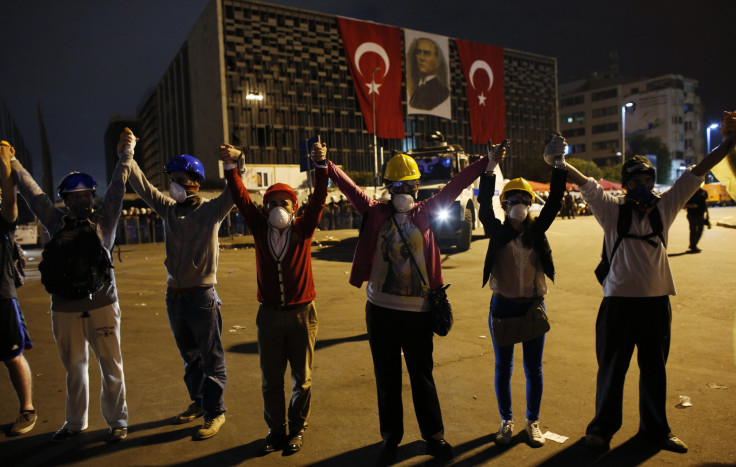Turkey Targets Western TV Reporters In Crackdown On Protests

Western television reporters are the latest targets of hostility by the Turkish government as it tries to stave off international condemnation for the police crackdowns on widespread protests this month, a press freedom group said.
“The prime minister and his subordinates have singled out reporters from foreign media for retaliation,” Nina Ognianova, the Committee to Protect Journalists’ program coordinator for Europe and Central Asia, said Wednesday.
In Ankara, Mayor Ibrahim Melih Gokcek described BBC Turkish reporter Selin Girit as an English "agent,” launching a smear campaign on Twitter that the broadcaster said left it “very concerned.” The criticism recalls the Turkish government's recent denunciation of a cartoon in The Economist, the prestigious British weekly that graphically portrayed Erdoğan as a sultan.
“A large number of threatening messages have been sent to one of our reporters, who was named and attacked on social media by the Mayor of Ankara for her coverage of the current protests,” the BBC said in a statement.
Ognianova said Gokcek also attacked CNN anchor Christiane Amanpour with similar slams on Twitter.
“This kind of behavior comes from public officials and it’s not in any way addressed [by senior leadership],” Ognianova said. “In face, the Prime Minister [Recep Tayyip Erdoğan] referred to the case and praised the mayor for his behavior and chimed in to vilify the BBC correspondent himself.”
The Turkish government has been rounding up protesters for the last week, raiding the homes of at least 40 Twitter users, Ognianova said. But, in a country that ranks the worst on the CPJ’s press freedom index, with more jailed journalists than Iran or China, that’s to be expected.
“The most troubling trend now is that foreign media are being villainized,” she said, “and publicly so.”
© Copyright IBTimes 2025. All rights reserved.






















